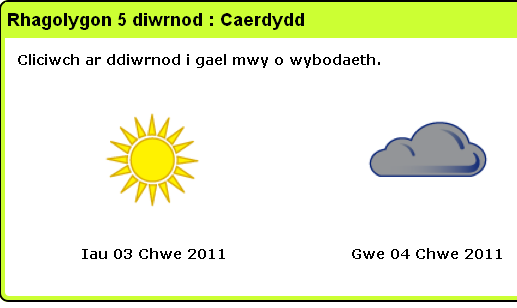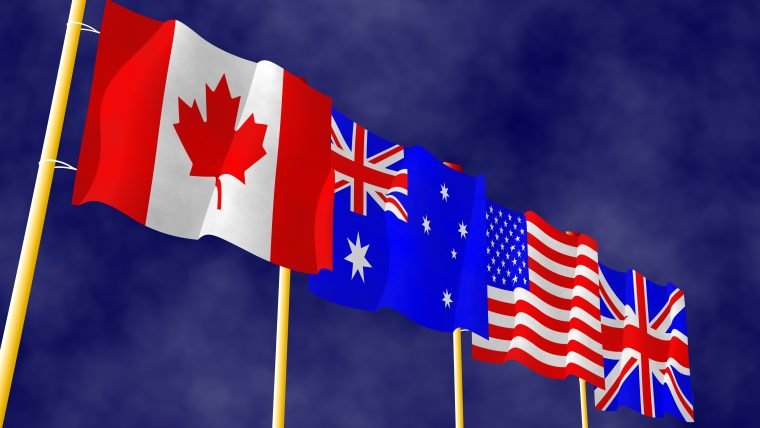 The Western Mail reported last week on a road sign in Newport, ‘no access for coaches’, that was translated as Dim mynediad ar gyfer hyfforddwyr, banning access to sporting coaches, as opposed to buses. It seems there’s no welcome for Warren Gatland in Newport!
The Western Mail reported last week on a road sign in Newport, ‘no access for coaches’, that was translated as Dim mynediad ar gyfer hyfforddwyr, banning access to sporting coaches, as opposed to buses. It seems there’s no welcome for Warren Gatland in Newport!
This is not the first time a mistake of the sort has been made. Sgymraeg is a new word coined in the last few years meaning ‘bad Welsh’. So many examples have been collected that a new book has recently been published gathering the ‘best’ or ‘worst’ examples. The image on the book’s cover is perhaps one of the best known ‘Sgymraegs’. The Welsh translation has nothing to do with heavy goods vehicles but rather is the translator’s out of office reply. Another famous sign showed ‘cyclists dismount’ in English but llid y bledren, dymchwelyd (cystitis upturn) in Welsh. Many Welsh speakers confronted with horrendous bilingual signs are left torn between laughing and crying, being grateful that our language now has more visibility than ever before, but offended that such bad Welsh is tolerated. Volunteers have been busy taking photographs of similarly idiotic signs and posters and many are available on websites such as Flickr.
I explored the 53-page discussion on Welsh language forum Maes-e to try to ascertain what goes so wrong with these translations. While the examples above presumably result from a lack of proof reading and possibly also an absence of common sense, many of the worst examples seem to be caused by incompetent use of a dictionary or are from translation websites, proving that while technology can be a wonderful tool to aid translation, human beings who can understand the context are still the only good translators.
The management of a restaurant in the town of Mold (Yr Wyddgrug in Welsh) are to be commended for their decision to erect a sign welcoming Welsh speakers to the town for the Eisteddfod, but it’s a shame it read Croeso i’r Llwydni (Welcome to the Mildew).
Some examples stem from typing errors, for example it is claimed that a manager in a Cardiff department store has the word preseb (manger) on his badge. A viewing gallery has been rendered in Welsh not as oriel wylio but as oriel wylo (crying gallery). The sign ‘keep out’ should be ‘cadwch allan’ in Welsh, but has been spotted with a ‘c’ instead of a ‘d’ in ‘cadwch’, the meaning of which I’ll let you guess. With others the omission of a word or two leads to a change in meaning with a Cardiff pub showing ‘Fire Exit Only’ in English and Allanfa Dân Unig (Lonely Fire Exit) in Welsh. Another sign in Cardiff instructed English speakers to look right while Welsh speakers were to look left.
A South Wales bookshop has tystlythyr (recommendation letter) on the sign for the reference section. Another establishment has diolch am eich arfer (thank you for your habit) for ‘thank you for your custom’. Cyngor cyfreithlon does indeed mean ‘legal advice’ but in the sense of lawful, not in the sense of ‘related to the law’. Morlo swyddogol Llywelyn displayed in an exhibition does mean ‘Llywelyn’s official seal’ but he was reputed to have a faithful dog, not a sea mammal. Modrwywch am gymorth on a poster in a police station instructs Welsh speakers to use a ring, such as a wedding ring, for help. Oedolion sy’n cyfeilio (adults who accompany with musical instruments) is a translation of ‘accompanying adults’ but probably not what was originally meant. Dibwys Ffrwythau (unimportant fruit) is a rather strange translation of ‘fruit trifle’ as is natur tawedog (of a quiet nature) of ‘nature reserve’ and cymhlethdod UCI (UCI complexity) of ‘UCI complex’. Welsh speakers may be surprised by the command ymostyngwch (be submissive) when trying to submit a form on the internet, baffled by amheuon (doubts) for the ‘reservations’ counter at the airport and completely confused by baladr ond (‘baladr’ is the staff of a spear, followed by the Welsh word for ‘but’) for a room reserved for employees.
To avoid ‘Sgymraeg’, Business Language Services can help you with your Welsh translation needs. All our translations are carried out by professional, qualified translators and proof read by an independent linguist. To contact us, drop us an e-mail or give us a call, but don’t try twisting your wedding ring.

